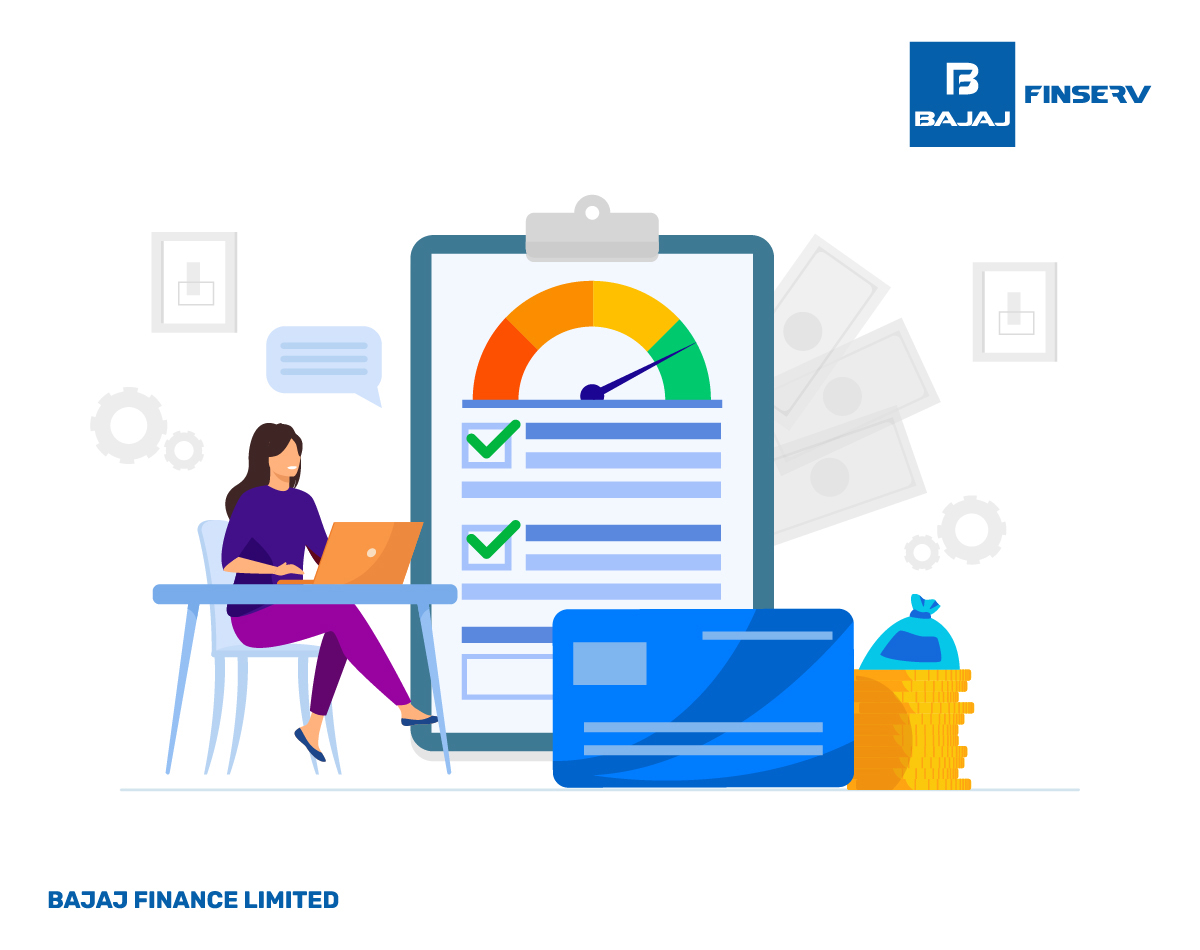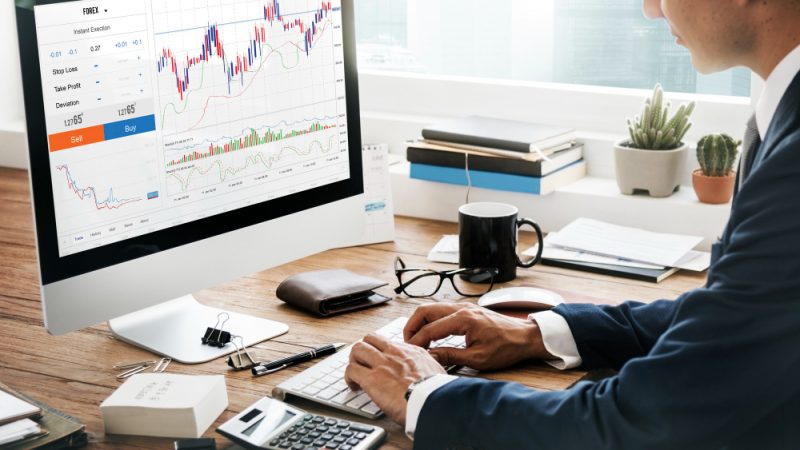What are the Steps for CIBIL Login to Monitor your Credit Health?

Maintaining a healthy credit score is vital for both personal and commercial financial stability. Regularly checking your CIBIL Score helps you understand your financial standing, make informed decisions, and ensure you remain in good credit health. This article will guide you through the steps for a secure CIBIL Score login, whether you are an individual or a business, to effectively monitor your credit health.
Why your CIBIL Score matters?
The CIBIL Score, provided by the Credit Information Bureau (India) Limited, is a numerical representation of your creditworthiness. It ranges from 300 to 900, with higher scores indicating better credit health. This score is crucial as it impacts your ability to obtain loans, credit cards, and other forms of credit. A high CIBIL Score can lead to lower interest rates and quicker loan approvals, while a low score can limit your credit opportunities. Additionally, tasks like Aadhar card download are essential for identity verification during credit applications.
Steps for a secure CIBIL Score login
To effectively monitor your credit health, follow these steps for a secure CIBIL Score login:
1. Access the official CIBIL website
The first step is to visit the official CIBIL website at www.cibil.com. Ensure you are on the correct site by checking for the padlock symbol in the URL bar, which indicates a secure connection. This step is crucial to avoid phishing sites that can compromise your personal information.
2. Locate the login section
On the homepage, find the login section. Depending on your needs, select either the personal or commercial CIBIL login portal:
- Personal CIBIL login: For individuals checking their personal credit scores.
- Commercial CIBIL login: For businesses monitoring their commercial credit scores.
3. Register or enter your credentials
If you are logging in for the first time, you will need to register by providing basic details such as your PAN number, date of birth, and email ID. Returning users should enter their registered email ID and password. Ensure your password is strong, combining letters, numbers, and special characters to enhance security.
4. Activate two-factor authentication
Enhance your account security by enabling two-factor authentication (2FA). This involves receiving a one-time password (OTP) on your registered mobile number, which you will need to enter along with your regular password. This extra layer of security helps protect your account from unauthorised access.
5. Use a secure device and network
Always use a secure device and network to access your CIBIL account. Avoid public Wi-Fi networks and ensure your device has updated antivirus software to protect against malware and other security threats. Using a personal device reduces the risk of unauthorised access.
6. Review your credit score
Once logged in, navigate to your dashboard to view your credit score and detailed report. Regularly reviewing your credit report helps maintain a good score and allows you to identify and rectify any discrepancies promptly. Your credit report includes details of your credit history, outstanding debts, and any recent credit inquiries.
Managing commercial CIBIL Scores
For businesses, maintaining a good credit score is equally important. Here’s how to manage a commercial CIBIL login:
1. Register for commercial CIBIL
If your business is not yet registered, provide necessary company details, including the company’s PAN, incorporation details, and other relevant information. Additional documentation may be required to verify your business.
2. Authorised access only
Limit access to your commercial CIBIL account to authorised personnel only. This ensures data integrity and security. Set up protocols for who can access the account and regularly review these permissions.
3. Regular monitoring
Regularly check your business credit score and report. Monitoring your commercial credit score helps identify any irregularities or fraudulent activities early, allowing you to take corrective action promptly.
Best practices for maintaining a good credit score
Maintaining a good credit score involves disciplined financial habits and regular monitoring. Here are some best practices:
1. Timely payments
Ensure all your loan and credit card payments are made on time. Late payments can significantly impact your credit score. Consider setting up automatic payments or reminders to avoid missing due dates.
2. Limit credit utilisation
Keep your credit utilisation ratio below 30%. High credit utilisation can negatively affect your score. For instance, if your total credit limit is Rs. 1,00,000, try to use no more than Rs. 30,000.
3. Avoid multiple loan applications
Applying for multiple loans or credit cards in a short period can lower your credit score. Each application results in a hard inquiry, which can negatively impact your score.
4. Monitor your credit report regularly
Regularly review your credit report to check for discrepancies or fraudulent activities. You are entitled to one free credit report each year from each of the major credit bureaus.
5. Maintain a mix of credit types
Having a diverse mix of credit types, such as credit cards, mortgages, and personal loans, can positively impact your credit score. It demonstrates to lenders that you can manage various types of credit responsibly.
Common issues and solutions in CIBIL Score login
1. Forgot password
If you forget your password, use the ‘Forgot Password’ option on the login page. You will need to provide your registered email ID to receive a password reset link. Follow the instructions in the email to reset your password.
2. Account locked
After multiple failed login attempts, your account may get locked. Contact CIBIL customer support to unlock your account and regain access. Verification of your identity may be required.
3. Technical glitches
If you encounter technical issues during login, clear your browser cache and cookies or try accessing the site from a different browser. If the problem persists, reach out to CIBIL support. Keeping your browser and operating system updated can help avoid technical problems.
Enhancing security for CIBIL Score login
1. Strong passwords
Use strong and unique passwords for your CIBIL account. A combination of uppercase letters, lowercase letters, numbers, and special characters is recommended. Avoid using easily guessable information like birthdays or common words.
2. Regular password updates
Change your password regularly to enhance security. Avoid using the same password for multiple accounts. Regular updates can help prevent unauthorised access in case one of your other accounts gets compromised.
3. Enable account alerts
Enable email and SMS alerts for any login attempts or changes made to your CIBIL account. This helps in early detection of any unauthorised access. Being promptly informed about suspicious activities allows you to take immediate action.
Conclusion
Performing a secure CIBIL Score login to monitor your credit health is crucial for maintaining good financial health. By following the steps outlined in this guide, you can ensure that your personal and commercial CIBIL activities remain protected. Regular monitoring, timely payments, and adherence to security best practices will help you maintain a strong credit score, ultimately benefiting your financial future.
By implementing these security measures, you can confidently manage your CIBIL login and keep track of your credit score, ensuring your financial decisions are well-informed and your data is secure. Maintaining a good credit score is an ongoing process that requires vigilance and responsible financial behaviour. Regularly checking your credit score and report allows you to stay on top of your financial health and make informed decisions that positively impact your future.






